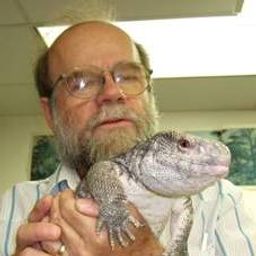WORKSHOP 1: Kristin Andrews - Ways other minds know other minds.

Mon statut pour la session
Quoi:
Workshop
Quand:
7:30 PM, Mardi 26 Juin 2018
(2 heures)
Où:
Université du Québec à Montréal
- DS-R510
Thème:
philosophy
animal mindsconsciousnessmindreading
Mind-reading, or the ability to attribute mental states to others, is a familiar and significant ability for adult humans, and the investigation into whether humans are alone in this capacity has been a vexed topic over the last forty years. There are three key complexities to the investigation: one, there are a host of different kinds of content that could be mind-read (e.g. perceptual states, emotions, beliefs); two, there are a host of different kinds of methods for coming to learn about others’ mental content (e.g. perception, cognitive attribution, mirroring plus interoception); three, we lack a good understanding of these capacities in humans, and false assumptions can lead the investigation into animal mind-reading astray. With these complexities on the table, we can turn to the recent research suggesting that great apes attribute false belief to others (Krupenye et al. 2016; Buttelmann et al. 2017). I will argue that these studies do not provide converging evidence that apes have the concept of belief or can attribute belief to others, and that likewise the infant studies that these experiments are based on fail to offer evidence of belief attribution, at least on familiar representational accounts of what a belief is. I will present an alternative function for belief attribution, namely, the explanation of anomalous behavior. I’ll discuss the extent to which other species might have this capacity, and what sorts of studies we could do in order to better investigate the question of mind-reading belief across species. I will also discuss the importance of looking at the ways different species may solve their own versions of the other minds problem.
Andrews, K., & Huss, B. (2014). Anthropomorphism, anthropectomy, and the null hypothesis. Biology & Philosophy, 29(5), 711-729.
Andrews, K., & Gruen, L. (2014). Empathy in other apes.
Andrews, K., & Radenovic, L. (2008). Animal cognition. The International Encyclopedia of Ethics.
Andrews, K., Crozier, G., Donaldson, S., Fenton, A., Johnson, L. S. M., Jones, R., ... & Rocha, J. (2018). The Philosophers' Brief on Chimpanzee Personhood.
Domes, G., Heinrichs, M., Michel, A., Berger, C., & Herpertz, S. C. (2007). Oxytocin improves “mind-reading” in humans. Biological Psychiatry, 61(6), 731-733.

Kristin Andrews (Speaker)
York University
York University

Christiane Bailey
Université de Montréal
Université de Montréal

Gordon Burghardt
Alumni Distinguished Service Professor University of Tennessee
Alumni Distinguished Service Professor University of Tennessee





